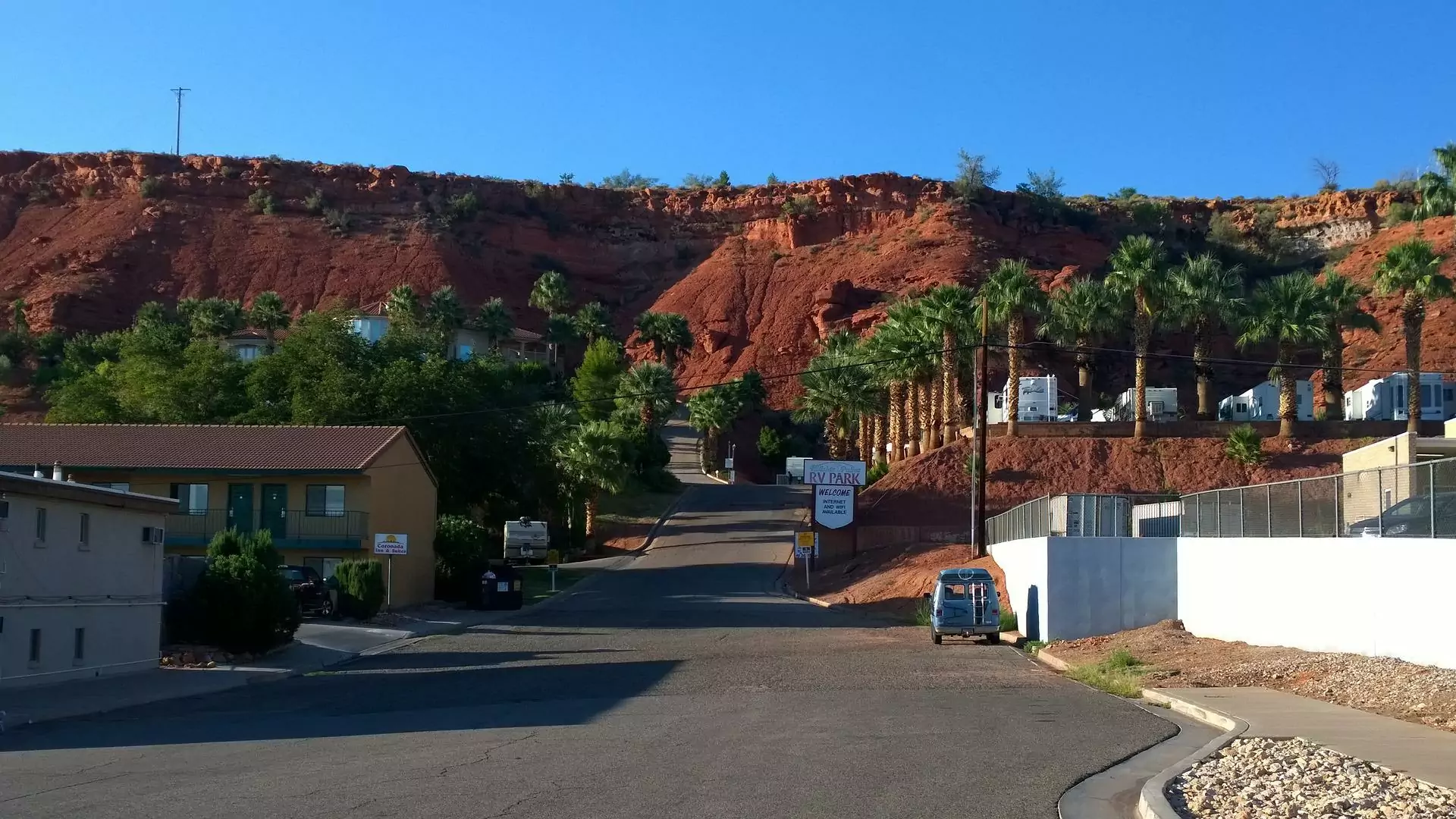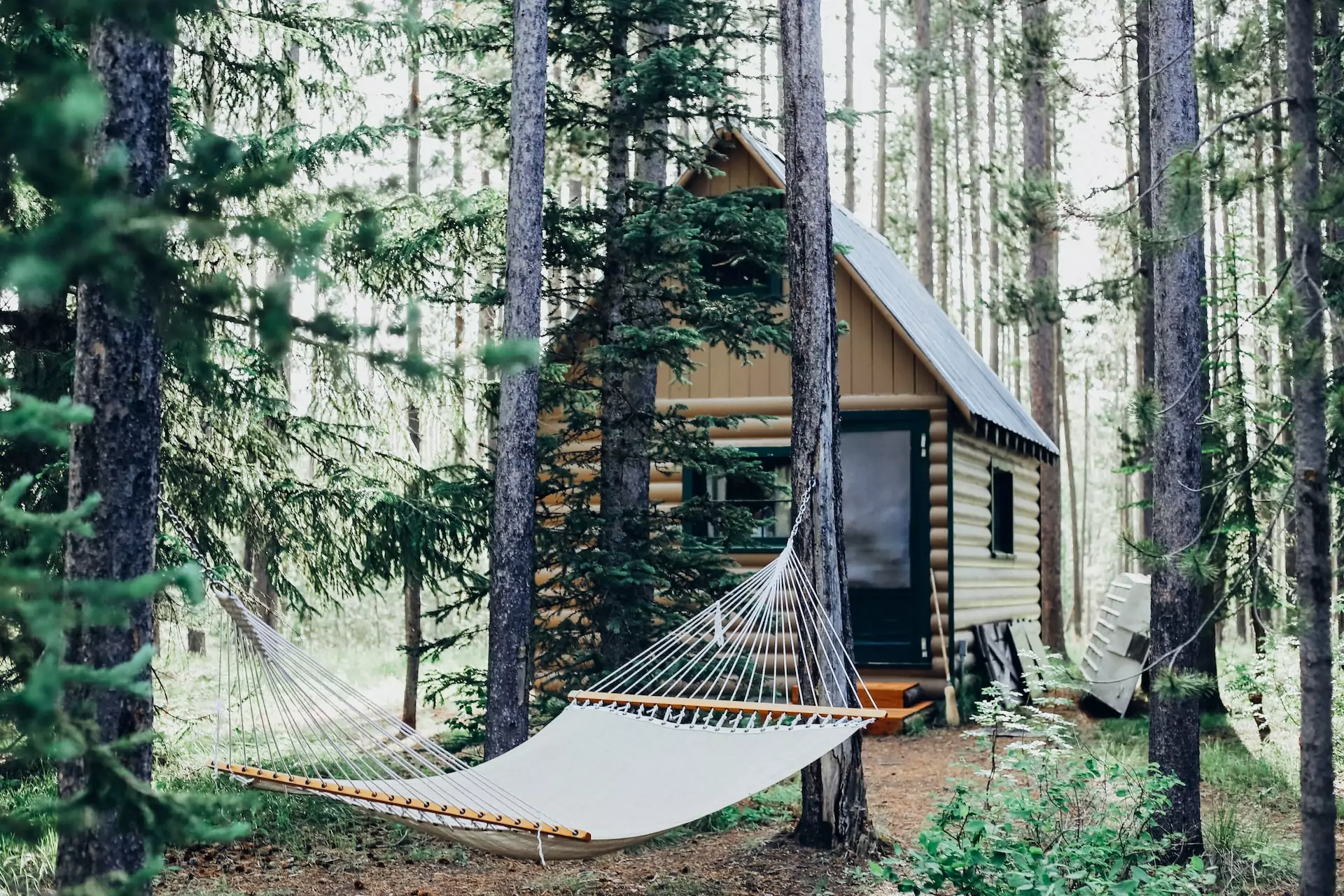A Small Business Administration (SBA) loan can be a viable way to become a real estate investor. While SBA Loans cannot be given to businesses where real estate investment is the primary source of income, you can still get an SBA Loan to purchase a rental property if you meet certain criteria.
This SBA Loan guide will take you through everything you need to know about applying for this type of U.S. Government-backed loan for rental property investments.
What is an SBA Loan?
An SBA Loan is a type of small business loan backed by the U.S. Government Small Business Administration (SBA) and issued by banks, community development organizations, or microgrant lending institutions. These loans can support operating capital or fixed assets, such as furniture, equipment, remodeling, or real estate, including needs related to mid-term rental property management.
The U.S. SBA guarantees the business loans it backs by reimbursing the lender a high percentage of the loan if you (the borrower) happen to default, which lessens the risk for the lender. The percentage the SBA will reimburse the lender depends on the type of SBA Loan for rental property investments. When using an SBA loan for real estate, it’s important to understand the typical length of mortgage, which often ranges from 10 to 25 years depending on the loan structure and property type.
Get more information on real estate investment loans for landlords.
Can I Get an SBA Loan to Buy Rental Property?
The SBA does not offer loan assistance to businesses where the primary income source is real estate investing. It will only back small business loans for real estate when the rental property is owner-occupied by the business taking out the loan and used as part of its operations, often requiring a formal business account for real estate to manage finances and meet eligibility criteria.
But there’s a potential loophole in that most SBA loan lenders only require the business to occupy 51% of the rental property funded by the loan. This means business owners can lease the rest of the rental property for supplemental income. In other words, you may use an SBA loan to buy residential or commercial real estate that has a storefront on the ground level and a rental unit above.
In cases where the SBA is backing a small business loan for rental property investing that will go towards the construction of a new building, 60% of it needs to be owner-occupied, but that still leaves 40% of the rental property that can be leased to tenants.
These rules apply to the SBA 7(a) Loan and SBA 504 Loans which are two of the most popular rental property SBA Loan products.
Fannie Mae loans for 2-4 unit properties.
Low down payment, straightforward qualifications.
What Types of SBA Loans are Available?
here are various types of business loans backed by the SBA. They come in several varieties, but the most ideal business loan for rental property investing in residential or commercial real estate is the SBA 7(a) Standard Loan.
TSBA 7(a) Standard loans
Maximum loan amount: $5 million
Loan approval time: 5-10 days
Maximum interest rates: 4.25-4.75%
Business loan to acquire commercial real estate, expand a commercial rental property, or fund ground-up construction (sometimes called SBA commercial real estate loans).
Some lenders can approve your 7(a) business loan without SBA review.
SBA guarantees up to 85% for business loans less than $150,000 and up to 75% for business loans greater than $150,000.
Maximum interest rates for loans less than 7 years:
Up to $25,000 = Prime + 4.25%
$25,001 to $50,000 = Prime + 3.25%
Over $50,000 = Prime + 2.25%.
No collateral is required for a 7(a) business loan that’s less than $25,000.
SBA 7(a) Loans over $350,000 are required to be collateralized to the fullest extent (up to the amount of the full business loan).
If the fixed assets of a business don’t cover the loan, trading assets can be brought in by the lender (up to 10% of the business’s book value). The lender must also take equity from the personal and residential or commercial real estate under the principal owners of the business as collateral.
SBA 504 Loans
Maximum loan amount: $5-$5.5 million (depending on the project)
Loan approval time: 65-75 days
Maximum interest rates: 2.08-2.18% above the U.S. Treasury Index
Business loan for economic development to use as working capital or inventory.
SBA 504 loans offer a lower interest rate, lower fees and a lower down payment depending on the size of the real estate development project.
The term of an SBA 504 loan for rental property and land is 20 years, and 10 years for heavy equipment.
Certified Development Corporation (CDC) interest rate portion is between 2.08% and 2.18% above the U.S. Treasury Index.
Guarantee on SBA 504 loans is up to 50% of the CDC portion and 40% of the lender portion.
SBA 504 loans require a 10% down payment.
Credit approval for SBA 504 loans is set by individual lenders, but usually requires a credit score of 680 and up.
SBA CAPLine Loans
Lines of credit for a cyclical and short-term financial needs. These SBA business loans come in four distinct varieties.
Seasonal CAPLine Loan: This SBA business loan can only be used for seasonal increases of accounts receivable and inventory.
Contract CAPLine Loan: For fulfilling assignable contracts and the direct labor and materials associated with that.
Builder’s CAPLine Loan: For the building costs and material, as well as direct labor for any contractor or builder of commercial or residential real estate with the actual rental property serving as collateral.
Working Capital CAPLine Loan: A revolving line of credit based on assets for businesses who can’t meet typical credit standards for long-term business loans. Repayment is made by turning short-term assets into cash that’s then handed over to the lender.
Maximum: $5 million
Maturity: Up to 10 years, except Builder’s CAPLines, which is five
Everything else is the same as SBA 7(a) Loans
SBA Export Working Capital
Maximum loan amount: $5 million
For businesses that export sales and need additional capital to complete those sales.
The request is submitted to the closest U.S. Export Assistance Center to where the borrower lives.
Lender approves applications.
Maximum guarantee on these SBA business loans is 90% up to $4.5 million.
Maturity for SBA Export Working Captial business loans is one year, but can go up to three.
No maximum interest rate but SBA monitors for irresponsible rates.
SBA Export Express Loans
Maximum loan amount: $500,000
Loan approval time: 24 hours
Maximum interest rates: same as SBA Express
Approval or denial within 24 hours of receiving your application.
Each lender has its own documentation and credit decision process for an SBA Export Express small business loan.
Maximum guarantee is 90% of loans $350,000 or less and 75% guarantee of over $350,000.
Revolving line of credit that matures after 7 years.
SBA Veterans Advantage
Business must be 51% owned by an honorably discharged veteran, active duty military service members, Active Reservists, and/or National Guard members.
This SBA small business loan also extends to the spouses or widowed spouses of the above.
SBA Veterans Advanage small business loan includes lower fees and loose borrowing terms.
Functions similarly to an SBA Express Loan.
What Makes the SBA 7(a) Attractive to Real Estate Investors?
Real estate investors can benefit from the low down payment requirement, which is between 10% and 15%. SBA 7(a) is also a long-term loan of up to 25 years. As a real estate investor, this means you don’t have to sell off or refinance a short-term balloon loan, as is often customary for commercial real estate. This business loan can be utilized to acquire commercial real estate, expand a commercial rental property, or fund ground-up construction.
Are there other SBA 7(a) business loan options?
SBA 7(a) Small Loan
- Available for smaller loans up to $350,000
- SBA Guarantee: Up to 85% for loans less than $150,000 and up to 75% for loans greater than $150,000
- Terms can be negotiated between lenders and borrowers, but must not exceed the maximum interest rates for 7(a) Standard Loans
- Collateral rules work the same way as they do for Standard 7(a) Loans with loans less than $25,000 not requiring collateral and loans over $350,000 required to be collateralized up to the full extent (up to the loan amount)
SBA 7(a) Express Loan
Also available for loans up to $350,000 but approval is within 36 hours.
SBA guarantees up to 50% of the business loan.
Revolving line of credit for up to 7 years.
A maturity extension is allowed at the time of application.
Who is Eligible for an SBA Loan?
Eligibility requirements for SBA loan assistance depend on which small business loan you apply for. There are SBA Loans available for specific types of businesses, like contractors and specific groups of people, like veterans.
But most people are applying for the 7(a) Standard Loan, which has its own eligibility requirements:
You must have a registered for-profit business that’s operating legally.
You can’t be on parole as a business owner.
Your business must have less than 500 employees and less than an average of $7.5 million in revenue each year over the past three years.
The business must be located in the U.S. and controlled by a U.S. citizen or someone living in the U.S. who is a legal permanent resident.
The business must be in an eligible industry and not engaged in illegal activity, multi-sales distribution (multi-level marketing), gambling, loan packaging, and investment or lending.
Eligible expenditures for an SBA small business loan include renovations or conversions of existing commercial real estate, repairs that are incidental to the renovation or conversion of a commercial building and construction, and the costs and fees associated with building a new rental property.
How to Apply for an SBA Loan
Applying for an SBA loan may seem overwhelming, but if you’re managing a business account for real estate, you can simplify the process by breaking it down into these manageable steps:
1. Choose an SBA Loan for rental property investing
Make sure the SBA small business loan you apply for can be used for real estate investing or to purchase a rental property. An SBA 7(a) Standard Loan is a catch-all for most business needs, whereas SBA 504 Loans can finance fixed assets meant for expansion or modernization through a certified development company (CDC). You can get An SBA Microgrant up to $50,000 for smaller real estate financing options.
2. Find SBA lenders for real estate investing
You can only get an SBA loan for rental property investments through an SBA partnered lender. Your bank or credit union might be one, so ask them. If that doesn’t work, the SBA does have a Lender Match tool on its site, which can help you find an SBA lender in your area.
You can also connect with your local SBA District Office and they can point you in the direction of your nearest lender that they work with. Some online lenders offer SBA guaranteed loans. Do your research to make sure these sites are legit. But, if you like what you see, you can get an SBA rental property loan without going anywhere.
3. Gather relevant documents
Your lender will help you out when it comes to telling you what documents you need to apply for an SBA real estate loan or you can read our extensive list of required documents in the section below. Either way, the amount of documents needed for an SBA loan is extensive and can take a few weeks to pull together.
4. Apply for an SBA rental property loan
You will then have to submit your application to your lender who will review your documents and possibly ask you for more information or more documents. After that, if they decide to process your application, after about a week you will receive a “Letter of Intent,” which will outline the SBA real estate loan terms and any fees or deposits you must pay, along with closing details.
If you’re good with the terms proposed by the Letter of Intent, the lender will begin a more formal underwriting process. The lender and the SBA will then thoroughly look over your application, the submitted documents and your credit history.
If the SBA and the lender approve your application, they will send you a commitment letter, which you will need to sign if you want to move forward. You’ll then get the closing documents that your lender will coach you through. Once you sign the closing documents, the SBA rental property loan funds will be disbursed.
At the end of the day, the whole SBA real estate loan application process can take two to three months. However, some lenders say they can get you the money from the SBA in your hand in 45 days or less.
SBA Loan Document Checklist
The documents needed for the 7(a) Standard SBA Loan are as follows:
- SBA Loan Application Form (Form 1919)
- A personal financial statement and a personal background statement
- Financial statements from your business outlining profit and loss and one year of financial projections
- A list of business ownerships and affiliations
- Your business license or certificate
- Your loan application history
- Tax returns from the last three years from your business and personal life
- Resumes for each principal of the business
- A business history and overview
- A copy of your business lease
Pros & Cons of SBA Loans for Rental Properties
Let’s delve into the advantages and disadvantages of using SBA loans for rental properties:
Pros of SBA Real Estate Loans for Rental Properties
- Long Repayment Terms: SBA real estate loans have longer repayment periods. This reduces the monthly repayment amount, making it easier for the borrower to manage their rental property cash flow management more effectively.
- Low Down Payments: Unlike conventional commercial loans, SBA loans often require a smaller down payment, making it more accessible for borrowers with little capital upfront.
- Lower Interest Rates: SBA loans usually have lower interest rates compared to conventional loans because the government partially guarantees the loan, reducing the risk for the lender.
- Flexibility: SBA real estate loans cover real estate purchases and can be used for various purposes like buying, constructing, renovating, or refinancing rental properties. This allows borrowers to leverage them for different strategic goals.
- Access to Capital: For new landlords and investors, access to capital may be a significant barrier. SBA real estate loans offer an opportunity to secure needed funding.
Cons of SBA Real Estate Loans for Rental Properties
- Complex Approval Process: SBA loans often require extensive paperwork and can have a longer approval process compared to traditional loans.
- Personal Guarantee Required: SBA real estate loans usually require a personal guarantee from the borrower. This means the borrower’s personal assets or real estate purchases could be at risk if they default on the loan.
- Prepayment Penalties: Some SBA loans have prepayment penalties, which means you may have to pay a fee if you decide to pay off the loan early.
- Use Restrictions: SBA loans are often restricted to owner-occupied properties. If the property is primarily for rental income and the owner doesn’t occupy at least 51% of it, they may not be eligible for an SBA loan.
- Collateral Required: Typically, the financed property serves as collateral for the loan, but lenders can also require additional collateral
These are general pros and cons and may vary depending on the specific type of SBA loan, the rental property, and the borrower’s unique situation. Consider speaking to a financial advisor or SBA-approved lender for detailed, personalized advice.
FAQs
Your SBA Loan might get rejected for a variety of reasons, including bad credit, you don’t have the assets you need, you don’t have a strong cash flow, you’re in the wrong industry, you have assets but won’t use them or you previously defaulted on other government-backed loans.
A commitment letter is a letter from your lender and the SBA saying that they approve your real estate loan for rental property investing and would like to offer it to you. If you sign it, they will send you the closing documents, close the loan and send you the money you requested.
Yes. The SBA did have a COVID assistance program for grants and loans, but they are no longer accepting applications as of the publication of this blog post. They are still offering their Paycheck Protection Program and COVID-19 EIDL, which is a loan for businesses experiencing revenue loss due to the pandemic.







